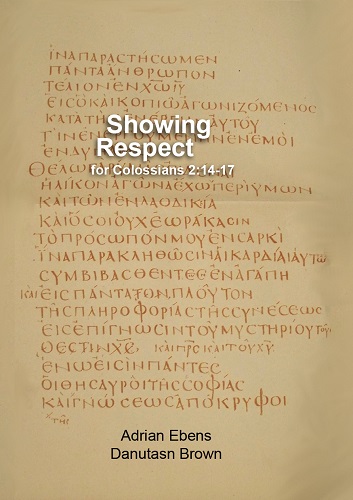The Death of Uzzah
One of the strongest objections against a non-violent character of God is the case of Uzzah. The Bible seems very clear in this case when it says that:
“And the anger of the LORD was kindled against Uzzah; and God smote him there for [his] error; and there he died by the ark of God” 2 Sam. 6: 7
Very clear, isn’t it? Uzzah did something that was clearly forbidden in the law of Moses, and therefore God struck and killed him. There is no other explanation than that God killed him directly, say opponents of a non-violent character of God.
However, let us read another example about which we have more details in the Bible. It is the story about king Saul. How did king Saul die? The Bible is very clear:
“Then said Saul to his armourbearer, Draw thy sword, and thrust me through therewith; lest these uncircumcised come and abuse me. But his armourbearer would not; for he was sore afraid. So Saul took a sword, and fell upon it” 1 Cron. 10: 4
So, the Bible says clearly that Saul took his own life. It is very clear and there is no room for doubt. However, in the same chapter just a few verses later we read the following:
“So Saul died for his transgression which he committed against the LORD, [even] against the word of the LORD, which he kept not, and also for asking [counsel] of [one that had] a familiar spirit, to inquire [of it]; And inquired not of the LORD: therefore he [the LORD] slew him, and turned the kingdom unto David the son of Jesse.” (1 Cron 10: 13,14)
Here we read something different than in verse 4, namely we are told that God killed Saul? How is it possible if in verse 4 we are told that Saul committed suicide by throwing himself on his sword?
Here is what the Spirit of Prophecy says:
“All through his course of rebellion Saul had been flattered and deceived by Satan. It is the tempter's work to belittle sin, to make the path of transgression easy and inviting, to blind the mind to the warnings and threatenings of the Lord. Satan, by his bewitching power, had led Saul to justify himself in defiance of Samuel's reproofs and warning. But now, in his extremity, he turned upon him, presenting the enormity of his sin and the hopelessness of pardon, that he might goad him to desperation. Nothing could have been better chosen to destroy his courage and confuse his judgment, or to drive him to despair and self-destruction” PP 680
“God had borne long with Saul; and although his rebellion and obstinacy had well-nigh silenced the divine voice in the soul, there was still opportunity for repentance. But when in his peril he turned from God to obtain light from a confederate of Satan, he had cut the last tie that bound him to his Maker; he had placed himself fully under the control of that demoniac power which for years had been exercised upon him, and which had brought him to the verge of destruction.” PP 676
Thus, things are much clearer. While he was faithful, Saul was under the special protection of God, but through disobedience to God and obedience to the devil's lies, Saul turned from God and thus broke the connection with his Protector and was left entirely in the hands of the master of his own choice, the devil.
From this case we have a very important principle, namely God takes responsibility for what he allows or for what He does not intervene to stop. God withdrew his protection from Saul and the Bible says that God killed him because without God's protection Saul had no chance against the devil.
Now, let us read the next statement:
“David had neglected the duty of punishing the crime of Amnon, and because of the unfaithfulness of the king and father and the impenitence of the son, the Lord permitted events to take their natural course, and did not restrain Absalom. When parents or rulers neglect the duty of punishing iniquity, God Himself will take the case in hand. His restraining power will be in a measure removed from the agencies of evil, so that a train of circumstances will arise which will punish sin with sin.” PP 728
From this statement we learn that unconfessed sins cause God to remove his restraining power from the agencies of evil (Satan and his angels) and the result is punishment and death for the sinner just as in the case of Saul.
Now, the next statement is very important:
“Satan had accused Jacob before the angels of God, claiming the right to destroy him because of his sin...” PP 201
So, Satan claims to have the right to destroy those who sin. Now, in the case of Jacob, God did not let Satan kill him because Jacob “had learned that God is merciful, and he cast himself upon His mercy. He pointed back to his repentance for his sin, and pleaded for deliverance. As he reviewed his life, he was driven almost to despair; but he held fast the Angel, and with earnest, agonizing cries urged his petition until he prevailed”. PP 201
Jacob repented for his sin and God did not allow Satan to destroy him but what about Uzzah? Was he a faithful man who made a simple mistake touching the ark? Here is what the Spirit of Prophecy says about this man:
“Upon Uzzah rested the greater guilt of presumption. Transgression of God's law had lessened his sense of its sacredness, and with unconfessed sins upon him he had, in face of the divine prohibition, presumed to touch the symbol of God's presence.” PP 705
Thus, Uzzah had unconfessed and unforsaken sins. His last sin was when he touched the ark disregarding the explicit commandment of God, and by this he lost his divine protection and Satan immediately killed him. As it was in the case of Saul, because God left him unprotected before the evil one, God assumed responsibility for his death saying that He “smote him there for [his] error”.
Read carefully the next statements because they bring more light on this issue:
“Cruelty is satanic. God is love; and all that He created was pure, holy, and lovely, until sin was brought in by the first great rebel. Satan himself is the enemy who tempts man to sin, and then destroys him if he can; and when he has made sure of his victim, then he exults in the ruin he has wrought. If permitted, he would sweep the entire race into his net. Were it not for the interposition of divine power, not one son or daughter of Adam would escape.” GC 534
“It is God that shields His creatures and hedges them in from the power of the destroyer. But the Christian world have shown contempt for the law of Jehovah; and the Lord will do just what He has declared that He would--He will withdraw His blessings from the earth and remove His protecting care from those who are rebelling against His law and teaching and forcing others to do the same. Satan has control of all whom God does not especially guard. He will favor and prosper some in order to further his own designs, and he will bring trouble upon others and lead men to believe that it is God who is afflicting them.” GC 589



